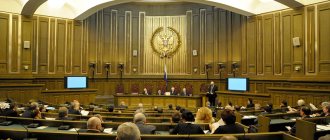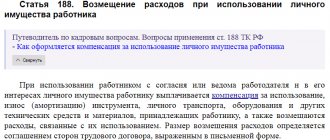Judicial practice: sentences and punishment under Art. 117 of the Criminal Code of the Russian Federation
- Resolution of the Plenum of the Supreme Court of the Russian Federation dated... PLENARY OF THE SUPREME COURT OF THE RUSSIAN FEDERATION DECISION dated December 27, 2002 N 29 ON JUDICIAL PRACTICE IN CASES OF THEFT,...
- Decision of the Supreme Court: Determination N 203-APU17-21... THE SUPREME COURT OF THE RUSSIAN FEDERATION Case No. 203-APU17-21 APPEAL DECISION Moscow August 31, 2021 Judicial Collegium for Military Personnel of the Supreme...
- Decision of the Supreme Court: Resolution No. 310P13 dated... DECISION OF THE PRESIDIUM OF THE SUPREME COURT OF THE RUSSIAN FEDERATION Case No. 310-P13 Moscow January 23, 2014 Presidium of the Supreme Court of the Russian Federation...
- Resolution of the Plenum of the Supreme Court of the Russian Federation dated... PLENARY OF THE SUPREME COURT OF THE RUSSIAN FEDERATION DECISION of November 15, 2021 N 48 ON THE PRACTICE OF APPLICATION BY COURTS OF LEGISLATION GOVERNING FEATURES...
- Judicial Collegium for Criminal Cases, appeal:... THE SUPREME COURT OF THE RUSSIAN FEDERATION Case No. 72-APU 17-21 APPEAL DECISION Moscow October 04, 2021 Judicial Collegium for Criminal Cases...
- Ruling of the ECtHR dated 02/14/2017 EUROPEAN COURT OF HUMAN RIGHTS THIRD SECTION CASE “MASLOVA VS. RUSSIAN FEDERATION” (Complaint No. 15980/12) JUDGMENT…
- Resolution of the Presidium of the Supreme Court of the Russian Federation dated... PRESIDIUM OF THE SUPREME COURT OF THE RUSSIAN FEDERATION DECISION dated December 5, 2018 N 126-P18 ON RESUMING PROCEEDINGS IN THE CASE DUE TO NEW...
- Resolution of the Plenum of the Supreme Court of the Russian Federation dated... PLENAUM OF THE SUPREME COURT OF THE RUSSIAN FEDERATION DECISION dated June 25, 2021 N 18 ON JUDICIAL PRACTICE IN CASES OF CRIMES,...
- Resolution of the Plenum of the Supreme Court of the Russian Federation dated... PLENAUM OF THE SUPREME COURT OF THE RUSSIAN FEDERATION DECISION dated December 17, 2021 N 43 ON SOME ISSUES OF JUDICIAL PRACTICE IN CASES...
- Decision of the Supreme Court: Determination No. 38-АПУ17-2 dated... THE SUPREME COURT OF THE RUSSIAN FEDERATION No. 38-АПУ17-2 APPEAL DECISION Moscow March 1, 2021 Judicial Collegium for Criminal Cases of the Supreme Court...
Commentary to Art. 117 of the Criminal Code of the Russian Federation
1. The object of the crime is social relations that guarantee the inviolability of the health of another person.
2. The objective side of torture is characterized by the action (systematic beatings or other violent actions), consequences in the form of physical or mental suffering of the victim, a causal relationship between the actions of the perpetrator and the suffering of the victim.
Thus, torture involves two ways of committing a crime:
1) systematic beatings;
2) committing any other violent acts.
The first method of torture involves systematic beatings, i.e. repeated hitting or pushing. The problem is that the law does not specify criteria for systematic beatings. In the criminal law literature, systematic beatings usually mean that they were inflicted at least three times. However, there is no consensus on the question of how long it takes for systematic beatings to occur.
The no longer in force Resolution of the Plenum of the Armed Forces of the Russian Federation noted that repeated infliction of minor bodily harm or beatings cannot be considered as torture if, for one or more episodes of accusation that give grounds for qualifying a person’s actions as systematic, the statute of limitations for bringing to criminal liability or administrative sanctions have already been applied to the person for these actions and the decisions on the application of these measures have not been cancelled. ——————————— See: Post. Plenum of the Armed Forces of the Russian Federation dated September 25, 1979 N 4 “On the practice of courts considering complaints and cases of crimes under Art. 112, part 1 art. 130 and art. 131 of the Criminal Code of the RSFSR."
Therefore, it can be assumed that systematicity is formed by cases where the beatings were inflicted during the statute of limitations for criminal prosecution for assault. In accordance with paragraph “a” of Part 1 of Art. 78 of the Criminal Code, the statute of limitations for holding people accountable for beatings is two years. Consequently, the perpetrator is subject to criminal liability for torture, and not for the totality of beatings, if he inflicted at least three beatings on the victim within two years from the date of the first beating. In this case, it is necessary to establish and prove that repeated beatings represented a certain line of behavior towards the victim, were covered by the unity of intent of the guilty person, had a certain internal connection, and, as a rule, were committed for the same motive. For otherwise, what was done does not form signs of a single element of torture, but requires qualification based on the totality of beatings.
The second method of torture does not imply systematicity of other violent actions. This conclusion follows from the analysis of the disposition of the law. Criminal liability for torture by inflicting physical or mental suffering through other violent actions also occurs in the event of their single commission. However, based on the meaning of the law, for the existence of the crime of torture in this case, greater intensity and duration of actions are required. For example, a one-time, but sufficiently long-term infliction of physical pain by pulling the victim by the hair forms elements of a crime under the commented article.
3. The consequences of torture are physical or mental suffering of the victim. In our opinion, these sufferings should be understood as relatively long-term excruciating physical or mental pain. Establishing the existence of physical or mental suffering is not within the competence of forensic medical experts. It must be established by law enforcement agencies.
At its core, torture is actions associated with repeated or prolonged infliction of pain - pinching, cutting, causing multiple but minor injuries with blunt or sharp objects, exposure to thermal factors and other similar actions. To torture means to cruelly torture (physically or morally). ——————————— Ozhegov S.I. Dictionary of the Russian language. P. 258.
4. The subjective side of the crime provided for in the commented article is characterized by intentional guilt in the form of direct or indirect intent. The judgment found in the criminal law literature that this crime can only be committed with direct intent is not based on the law. The physical and mental suffering of the victim does not necessarily have to be the purpose of the actions of the perpetrator. He can tolerate these consequences or be indifferent to them, striving for another goal, for example, self-affirmation through bullying the victim. In our opinion, there is no reason to limit the scope of application of the law.
5. The subject of the crime is a sane individual who has reached the age of 16 and who shows cruelty towards the victim.
6. The aggravating circumstances of torture coincide with similar signs of qualified murder.
In addition, the qualified elements of torture involve infliction of physical or mental suffering using torture. Torture in the note. to the commented article is defined as the infliction of physical or moral suffering in order to compel testimony or other actions contrary to the will of a person, as well as for the purpose of punishment or other purposes.
Based on the definition of torture, we can conclude that torture is the purposeful use of physical or mental suffering. Consequently, if the culprit caused suffering to the victim for any purpose, then his actions form the signs of a qualified offense provided for in paragraph “e” of part 2 of the commented article.






